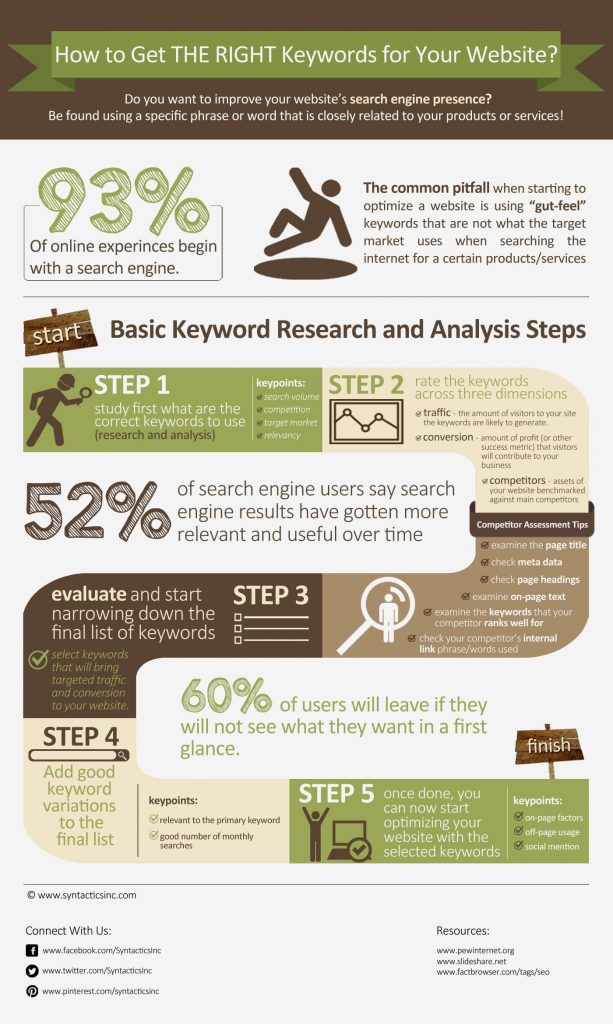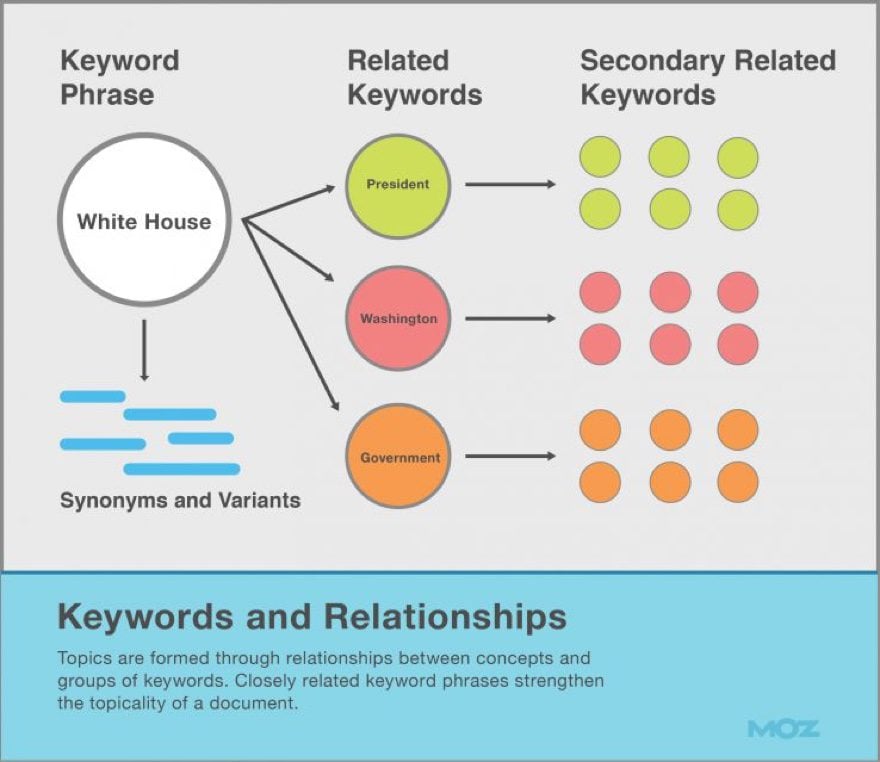Unlock the secrets of powerful SEO with this ultimate guide on choosing and leveraging primary keywords to boost your online presence.

Image courtesy of via DALL-E 3
Table of Contents
Welcome to the world of keywords! In this article, we will explore the importance of primary keywords, how to choose them wisely, and how to effectively use them in your digital content. Keywords are like secret codes that help search engines find the information you’re looking for online. By understanding how to select and use the right keywords, you can make your writing more searchable and easier to discover. Let’s dive in and uncover the power of primary keywords!
What are Keywords?
Keywords are like magic words that help you find what you’re looking for on the internet. When you type in keywords, like “funny cat videos” or “best pizza near me,” search engines use those words to show you websites and information that match what you want.
How Do Keywords Work?
Imagine keywords as clues that tell search engines, like Google, exactly what you want. They scan through millions of websites to find the ones that have the same keywords you typed. That’s how you get the right information quickly!
Why are Keywords Important?
Keywords play a vital role in the digital world, helping people find the information they need quickly and easily. Whether you’re searching for something online or creating content, choosing the right keywords is essential for effective communication. Let’s explore why keywords matter so much!
Helping People Find What They Need
Imagine you’re looking for information about your favorite video game online. You type in the game’s name as a keyword, and voila! You instantly find websites, reviews, and news related to that game. Keywords act as virtual signposts that guide you to the right content amidst the vast internet landscape. By using accurate keywords, content creators make it easier for users like you to discover relevant information without wasting time.
Making Content Visible
For content creators, keywords are like magical spells that boost visibility. When someone searches for topics related to your content, having the right keywords sprinkled throughout your writing increases the chances of your work appearing in search engine results. By strategically integrating keywords into your content, you amplify the chances of attracting more readers, viewers, or customers to your website or platform.
How to Choose Keywords
Choosing the right keywords is crucial when it comes to creating content or searching for information online. In this section, we will discuss the steps you can take to select the best keywords for your topic.

Image courtesy of www.syntacticsinc.com via Google Images
Think About Your Audience
Before choosing keywords, it’s essential to think about who your audience is. Knowing your audience helps you understand what words they are likely to use when searching for information. This understanding can guide you in selecting keywords that will resonate with your target audience.
Use Tools to Find Popular Keywords
There are simple tools available, like Google Keyword Planner, that can help you find popular keywords related to your topic. These tools provide insights into the most commonly used search terms, allowing you to select keywords that have a higher search volume.
Pick Keywords That Match Your Topic
It’s important to choose keywords that are directly related to the content you are creating. Selecting keywords that accurately represent your topic will increase the chances of your content being discovered by the right audience. Make sure the keywords you choose are relevant and specific to the information you are providing.
How to Use Keywords Correctly
In order to make your online content more visible and easily accessible, it’s crucial to use keywords correctly. Keywords are the words or phrases that people type into search engines to find information. Using the right keywords in your content can help attract more readers and improve your search engine rankings.
Use Keywords in Headlines
When creating content, make sure to include your chosen keywords in the headlines or titles. This not only helps search engines understand what your content is about but also grabs the attention of potential readers. By using keywords in headlines, you are making it easier for people to find your content when they are searching for information related to those keywords.
Spread Keywords Naturally
Keywords should be sprinkled naturally throughout your content. Avoid awkwardly stuffing keywords into sentences just for the sake of it. The key is to seamlessly integrate keywords into your writing so that they flow naturally. This not only improves the readability of your content but also enhances its search engine optimization.
Avoid Keyword Stuffing
Keyword stuffing refers to the practice of excessively using keywords in an attempt to manipulate search engine rankings. Not only does this make your content difficult to read and understand, but it can also lead to penalties from search engines. It’s essential to strike a balance and use keywords judiciously to ensure that your content remains engaging and informative without compromising its quality.
Types of Keywords
In the world of online searches, keywords play a crucial role in helping people find the information they are looking for. Keywords can be of different types, each serving a specific purpose in guiding users to relevant content. Let’s explore two main types of keywords – short-tail keywords and long-tail keywords.
Image courtesy of www.wordtracker.com via Google Images
Short-Tail Keywords
Short-tail keywords are brief and general terms that typically consist of one or two words. These keywords are broad in nature and are used by a wide range of users searching for general information. For example, ‘shoes’ or ‘recipes’ are short-tail keywords that cover a wide variety of topics within that category.
Short-tail keywords are valuable for attracting a large volume of traffic to a website or content. However, they can also be highly competitive, as many websites and content creators target these popular terms. Due to their generic nature, short-tail keywords may not always ensure that users find the most specific or relevant information they seek.
Long-Tail Keywords
On the other hand, long-tail keywords are more specific and detailed phrases that usually consist of three or more words. These keywords are focused on particular topics or aspects of a broader subject. For instance, ‘best running shoes for flat feet’ or ‘easy vegetarian dinner recipes for beginners’ are examples of long-tail keywords that target a specific audience looking for precise information.
Long-tail keywords are less competitive than short-tail keywords, making it easier for content to rank higher in search engine results. These keywords also attract a more targeted audience who are likely to be interested in specific content. While long-tail keywords may not drive as much traffic as short-tail keywords, they can lead to higher conversion rates due to their relevance to users’ specific needs.
In conclusion, both short-tail and long-tail keywords have their own advantages and are essential in optimizing content for search engines. By understanding the differences between these keyword types and utilizing them strategically, content creators can improve their visibility online and attract the right audience to their websites or platforms.
Tools to Help Find Keywords
Google Keyword Planner is a powerful tool that can assist you in finding the best keywords for your content. It allows you to research keywords relevant to your topic and provides valuable insights into their search volume and competition level. By using Google Keyword Planner, you can identify popular keywords that people are searching for, helping you optimize your content for maximum visibility.
Ubersuggest
Ubersuggest is another handy tool that can aid you in your quest for the perfect keywords. This tool provides keyword suggestions based on your input, helping you discover relevant terms that can drive traffic to your content. Ubersuggest also offers data on search volume, competition, and keyword trends, giving you the information you need to make informed decisions about which keywords to target.
Examples of Good Keyword Use
In a blog post about healthy eating for kids, the author uses key phrases like “nutritious meals for children” and “healthy snacks for kids” strategically throughout the content. These key phrases are relevant to the topic and help readers understand what the post is about. By including these keywords naturally, the blog post becomes more searchable and attracts readers interested in children’s nutrition.

Image courtesy of www.elegantthemes.com via Google Images
Example 2: Website Page
On a website selling handmade candles, the homepage includes keywords such as “handmade candles,” “soy wax candles,” and “aromatherapy candles.” These keywords are incorporated into the page’s content, headings, and meta descriptions. As a result, when users search for terms related to handmade candles, this website is more likely to appear in search engine results, increasing its visibility and potential for attracting customers.
Conclusion
In conclusion, choosing and using the right keywords are essential for effective writing and searching for information online. Keywords act as the bridge between what users are looking for and the content they need. By understanding how keywords work and their importance, individuals can greatly enhance their online presence and visibility.
When selecting keywords, it’s crucial to think about the target audience and use tools like Google Keyword Planner or Ubersuggest to find popular and relevant keywords. Matching keywords to the content topic ensures that the information remains focused and easily discoverable by users.
Properly incorporating keywords within content, such as in headlines and naturally throughout the text, is key to maximizing their impact. Avoiding keyword stuffing, which can harm the readability and credibility of the content, is equally important for maintaining a good online reputation.
Understanding the different types of keywords, from short-tail to long-tail keywords, and utilizing tools to assist in keyword research can further enhance the effectiveness of keyword usage. By following these guidelines and examples of good keyword placement, individuals can optimize their content for better visibility and engagement.
In essence, keywords serve as the backbone of online communication, connecting users with the information they seek and content creators with their target audience. By mastering the art of choosing and using keywords, individuals can significantly improve their online presence and reach a wider audience in the digital landscape.
Want to turn these SEO insights into real results? Seorocket is an all-in-one AI SEO solution that uses the power of AI to analyze your competition and craft high-ranking content.
Seorocket offers a suite of powerful tools, including a Keyword Researcher to find the most profitable keywords, an AI Writer to generate unique and Google-friendly content, and an Automatic Publisher to schedule and publish your content directly to your website. Plus, you’ll get real-time performance tracking so you can see exactly what’s working and make adjustments as needed.
Stop just reading about SEO – take action with Seorocket and skyrocket your search rankings today. Sign up for a free trial and see the difference Seorocket can make for your website!
Frequently Asked Questions (FAQs)
What is a keyword?
A keyword is a word or phrase that people use to search for information online. It helps search engines like Google find and show the right websites or articles that match what you are looking for.
How many keywords should I use?
When you are creating content, it’s best to use a few relevant keywords that directly relate to your topic. Using too many keywords can make your content sound unnatural and may not be as helpful for readers.
What if I use too many keywords?
If you use too many keywords in your content, a practice known as keyword stuffing, search engines may penalize your website or article. This means that your content may not show up as high in search results, and people might not find it easily.







